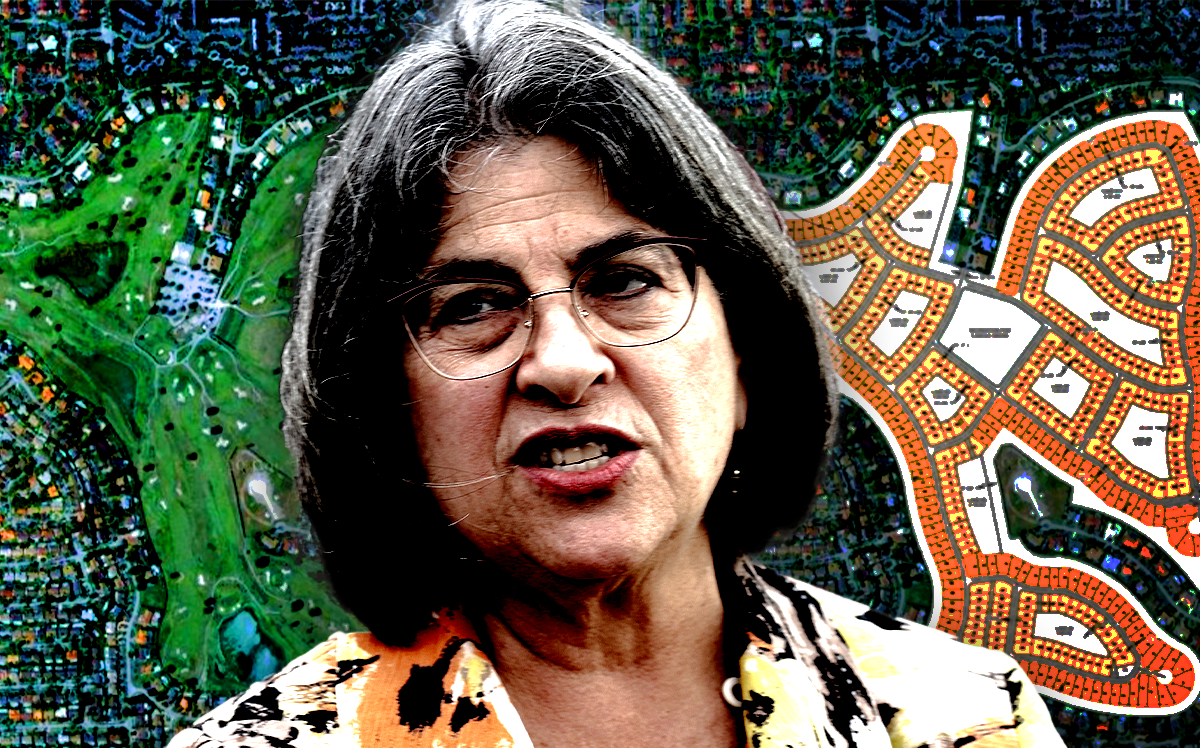UPDATED, Dec. 1, 10:35 a.m.: Miami-Dade County was slapped with an ethics complaint over its approval of a controversial plan for a large housing community on a West Kendall golf course that was meant to be preserved as green space.
Developer GL Homes wants to build a 550-home gated community on the Calusa Country Club, a 169-acre golf course on the southwest corner of Southwest 88th Street and 127th Avenue in a suburban, unincorporated part of the county.
The complaint, filed on Tuesday with the Miami-Dade Ethics Commission, is over the county’s approval of a rezoning that allows for the project.
Specifically, it alleges that the Nov. 17 hearing by the Miami-Dade County Commission, which was sitting as the zoning board, was improperly noticed. County code dictates the meeting is to be advertised in a newspaper at least 14 days in advance, a requirement that Miami-Dade is accused of violating.
“The notice requirements are very clear, and to me it seems like they didn’t follow them,” said Amanda Prieto, who filed the complaint and heads the Save Calusa group of residents who oppose the project. “The reason the newspaper notice was so important is because the only other notice is a mailed notice, but that only goes to a half a mile from the golf course itself. So that does not cover the entire community.”
The county said it complied with all noticing requirements.
The vote originally was scheduled and noticed for Oct. 20, but canceled at a meeting on Oct. 19 when it was announced the new meeting will be on Nov. 17. A second newspaper ad was not required, but the county still issued courtesy electronic and mailed notices to residents. The e-notice was sent to those who registered to receive alerts about the issue.
Still, the e-notice was less than 14 days prior to the meeting and had inaccurate information, said David Winker, the attorney who represents Prieto.
The county counters that an e-notice also was sent on Oct. 19 and that there was no inaccurate information in the e-notices.
He said a lawsuit premised on the same issue is also expected to be filed in the coming days.
Although the ethics complaint, as well as the impending lawsuit focus on a technicality, they mark the latest chapter in a decade-long tiff over development of the golf course.
The course, at 9400 Southwest 130th Avenue, has been closed since 2011 and is in the heart of the Calusa neighborhood, a single-family residential area with 2,074 homes.
The Save Calusa residents’ opposition group argues that development would increase traffic on already congested streets, put more of a strain on overcrowded local schools and wipe out the little remaining green space and wildlife habitat left in West Kendall. The fight is bolstered by the support of well-known local wildlife expert Ron Magill, also the communications director for Zoo Miami.
Miami-Dade County Mayor Daniella Levine Cava declined to veto the commission’s Nov. 17 vote. But she imposed more stringent environmental reviews that will be required before a project can proceed. Levine Cava directed the county’s environmental resource department to complete its own surveys, including to determine the existence of a bird rookery, in addition to overseeing GL Homes’ own survey.
The course was meant to remain untouched until 2067 under a land covenant signed years ago.
The only way the covenant could be lifted is if at least 75 percent of owners of homes directly surrounding the course, or the “ringlot” owners, agreed to lift the covenant. This threshold was surpassed when 123 out of the 146 ringlot owners accepted a $300,000 payment in 2019 and 2020 by the previous golf course owner in exchange for signing away the covenant. In October 2020, the county commission, sitting as the zoning board, officially voted to lift the covenant.
Facundo Bacardi, a member of the rum empire family hailing from Cuba, had been pushing to lift the development restriction since he bought the Calusa course in 2003 for $2.3 million.
GL Homes, based in Sunrise, bought the course in February for $32 million, with Bacardi owning a stake in the future project venture.
Magill, who technically is a county employee in his role at Zoo Miami, has been vocal about the issue. “Developer dollars and lobbyists are driving the decisions,” he said on the Dan Le Batard Show.
Building out Calusa also embodies the balancing act Miami-Dade is faced with in the booming housing market: Allowing more home construction to quench the high demand that has pushed up prices to unattainable levels, while tempering issues of congested roads and environmental concerns of building out the dwindling amount of open space.
Dick Norwalk, of GL Homes, said at the November county commission meeting that the project is a scaled-down version of a previous plan for 1,000 houses.
In a statement, he called the opposition’s impending lawsuit an attempt to delay the project.
“The county is best suited to address their rules and procedures with respect to noticing a hearing,” he said. “There was a full chamber for the hearing, indicating that the community was well aware that the item was coming up for a vote.”
GL Homes hopes to start building in the first half of 2022 and finish the community in 2026 or 2027.
This story was updated to clarify the county’s response.
